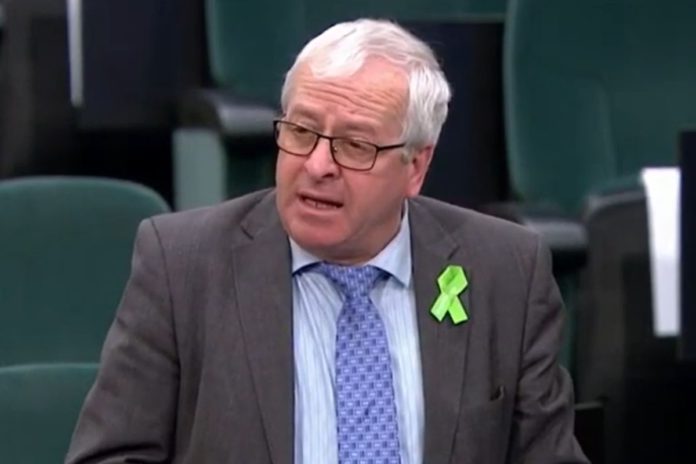The Independent Group believes the Climate Action and Low Carbon Development (Amendment) Bill 2021 is being rushed through the Dáil, while the country is amid a pandemic, without any consideration for the impact it will have on ordinary people, farmers, or rural Ireland.
According to the leader of the Rural Independent Group, Mattie McGrath, the bill is “perhaps, the most far-reaching piece of legislation to come before this chamber, in the current Dáil”.
He said the bill aims to bring about the reduction targets, five-yearly carbon budgets, sectoral emissions ceilings, an annually updated Climate Action Plan, and a Long-Term Climate Action Strategy, “with little or no actual democratic accountability by TDs”.
‘Attacks rural Ireland’
He warned the legislation has one common denominator – the legislative impact will make every single Irish citizen poorer or much less well off.
The group believe that this bill “will do absolutely nothing” to reduce global greenhouse gas emissions.
“In fact, the only thing that this legislation will do is hammer Ireland’s economy, cost thousands of jobs both directly and indirectly, and impoverish people further.”
“Above all else, this Bill is anti-rural, attacks the poor and will do absolutely nothing whatsoever to reduce Global greenhouse gas emissions.”
“Even though we produce 0.11% or a tenth of 1% of global greenhouse gas emissions, [the government] is introducing potentially the most severe and utterly unachievable emission targets anywhere on the planet.”
“It is easy for middle-class Green activists in Dublin to propose the end of farming as we know it, or campaign against economic growth, when the devastating consequences of both would be felt by others.”
Climate Bill: Agriculture
During his speech, McGrath revealed that the group believe the bill is anti-agriculture and says it provides no special derogation for the sector.
“The result of this will mean that under this bill, Irish agriculture will be forced to pay a much higher and disproportional cost than farmers in other countries.”
“The fact that this bill makes no special provision for the agricultural sector, is utterly outrageous. It means that the Climate Advisory Council and the Minister for the Environment will set the targets.”
“That means that the cuts, proposed under this bill for the agriculture sector, will be profound.”
Speaking to TDs, he said: “Either you stand with farmers and local communities by voting against this bill, or you are for the bill. But know this, if you vote in favour of this bill, you are crucifying every person living in rural Ireland.”
“You are voting to put people out of work, to cull large numbers of cattle, for higher food prices, for higher electricity prices, and to end the possibility of young local people obtaining planning permission on family-owned lands in rural areas.”
“And – you are voting to end the cutting of turf – a traditional solid fuel source for ordinary people,” he stressed.
Culling the national herd
McGrath warned that such provisions written into this bill, to meet the emission reductions, “will destroy agriculture in Ireland”.
“This has been well-documented by research, research that has been conveniently ignored by the government. For example, analysis, published by this year, suggests that half the cattle and cowherd would need to be culled by 2030.”
“This would mean a cull of around 3.4 million cattle and cows. It would have the impact of a farmer with 100 cows having to cull over 50 and only retain a herd size of around 50 in 2030. It would also mean even deeper cattle culls after 2030.”
“This bill certainly means an end to growing herd sizes and is completely in contrast to the objectives set out in the government’s own FoodWise 2025 strategy.”
He said the bill fails to recognise that Irish farmers are the most carbon-efficient food producers in the world, due to grass-based models of food production.
“The Mercosur trade deal, for example, will likely see 99,000 tonnes of beef per year coming into the EU, at a time when beef prices are hitting the floor, and when up to 3.4 million Irish cattle face culling in the next decade.”
During his speech, McGrath stated that the bill will bring an end to rural housing and will increase energy prices, as he called for “a fairer way”.
Concluding, McGrath urged the government to implement practical steps to “get their own house in order before forcing hard-hitting and painful hypocritical policies on the general public”.





